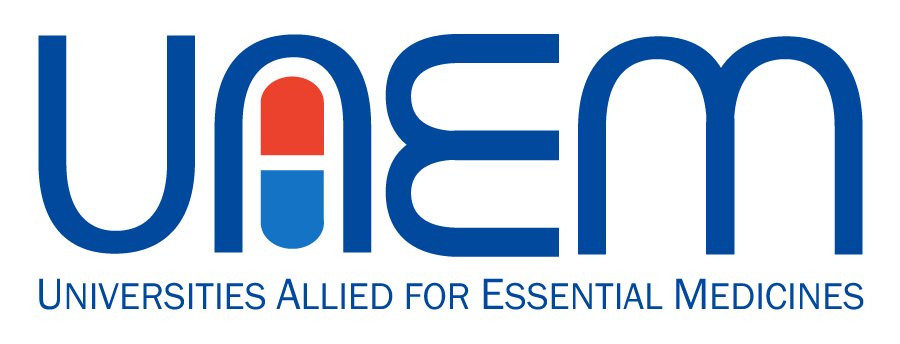FDA Grants Request for Clinical Trial Pre-Notice Dashboard, Continues Voluntary Enforcement in Formal Response to UAEM’s Citizen Petition
FOR IMMEDIATE RELEASE
Contact info@uaem.org
February 22, 2024 - WASHINGTON, DC - The U.S. Food and Drug Administration (FDA) issued a full response on February 21 to the citizen petition filed by Universities Allied for Essential Medicines (UAEM) requesting the agency increase and make transparent its enforcement activities for clinical trials that are non-compliant with legal requirements to report results information. The petition was filed on February 27, 2023 - almost exactly one year prior by UAEM in collaboration with Columbia Law School’s Science, Health, and Information Clinic (SHIC).
Citizen petitions enable individuals, organizations, or industry sponsors to petition the FDA to issue, amend, or take other administrative actions. UAEM’s petition urged the FDA to address the nearly 5,000 clinical trials missing results from the ClinicalTrials.gov registry, potentially posing serious health risks to patients, exacerbating uncertainty for clinicians, and slowing the advancement of biomedical research.
UAEM’s citizen petition requested the FDA take the following actions to increase enforcement of clinical trials results reporting requirements under the FDA Amendments Act (FDAAA) of 2007:
Order and organize offices to increase enforcement by issuing more Pre-Notices, Notices of Noncompliance, and imposing civil money penalties on responsible parties that fail to share their trial results.
Order the drafting and issuance of a new guidance document that explains how the FDA will focus its enforcement efforts. This guidance should clearly outline a prioritization framework for enforcement focused on ensuring public access to the results of the trials most important to patient care, science, and public health. More specifically, UAEM’s prioritization framework emphasized enforcement for products without proven alternatives, trials intended to address public health emergencies, and trials that focus on diseases that disproportionately impact marginalized communities.
Create a public dashboard of Pre-Notices sent by the FDA, so that the public can more easily track the agency’s enforcement activities.
FDA responded to UAEM’s requests with the following:
Denied– FDA refuses to increase its enforcement efforts. It claims, among other things, that voluntary compliance is enough: “As in all areas that FDA regulates, the Agency’s goal is to achieve timely voluntary compliance with the law without having to resort to legal action, which can be resource intensive and time-consuming.”
Partially Granted– FDA denied UAEM’s request to issue new guidance for its enforcement efforts. However, the agency granted UAEM’s request that FDA consider UAEM’s proposed enforcement framework if and when FDA decides to revise existing guidance.
Granted– FDA granted UAEM’s request to establish a dashboard of previously issued Pre-Notices. The agency executed this request by launching the dashboard on December 4, 2023. FDA has committed itself to adding newly issued Pre-Notices on a quarterly basis. FDA agreed with UAEM’s arguments about the value of transparency:, “We believe that public availability of Pre-Notice letters will provide greater transparency and awareness of FDA’s compliance actions and may further increase voluntary compliance by responsible parties.”
UAEM North America Board President and Yale School of Medicine Assistant Professor, Dr. Reshma Ramachandran observed that “although the availability of Pre-Notice letters through the dashboard is welcome, it also highlights the limited enforcement FDA has undertaken to effectively address the ongoing public health harms of widespread underreporting of clinical trials. Per its own dashboard, FDA has only issued 131 Pre-Notices despite thousands of clinical trials being noncompliant with the federal law the requires timely reporting of results.”
In its response, FDA defends its reliance on voluntary compliance,suggesting enforcement of ClinicalTrials.gov is a lesser priority:
“When deciding where to focus limited compliance resources, FDA considers which activities are likely to have the greatest and most direct public health impact and balances resource allocation to ClinicalTrials.gov with resource needs for other compliance programs…"
UAEM’s North America Clinical Trial Transparency Campaign lead, Megan Curtin spoke on the FDA’s recent response, stating, “It is wonderful to see the FDA make a commitment towards increasing transparency by establishing a public dashboard of Pre-Notices. While the FDA oversees many important programs, the agency should remember its responsibility to ensure the health and safety of patients enrolled in clinical trials when requesting its Congressional budget authority.”
UAEM’s Executive Director, Justin Mendoza, commented on the FDA’s response, stating, “It is promising to see the FDA focus on ensuring better accountability through its pre-notice dashboard, but it is concerning to see the FDA continue to rely on voluntary compliance despite the evidence presented in our petition.”
SHIC Student Attorney, Nancy Lu added, “It is heartening to have the FDA affirm that clinical trials results reporting is ‘important to [their] mission of protecting and promoting the public health’; I hope the partial grant of our citizen petition signals a new attention from the FDA to developing FDAAA enforcement mechanisms that further this mission.”
“The public Pre-Notice dashboard is an important step for both agency and clinical trial transparency. Hopefully, this access to information will aid continued advocacy in this area,” shared SHIC Student Attorney, Kasey Clarke.
SHIC Director and Associate Clinical Professor of Law at Columbia Law School Christopher Morten observed, “we’ve won an important partial victory, but we and the FDA have more work to do.”
###
